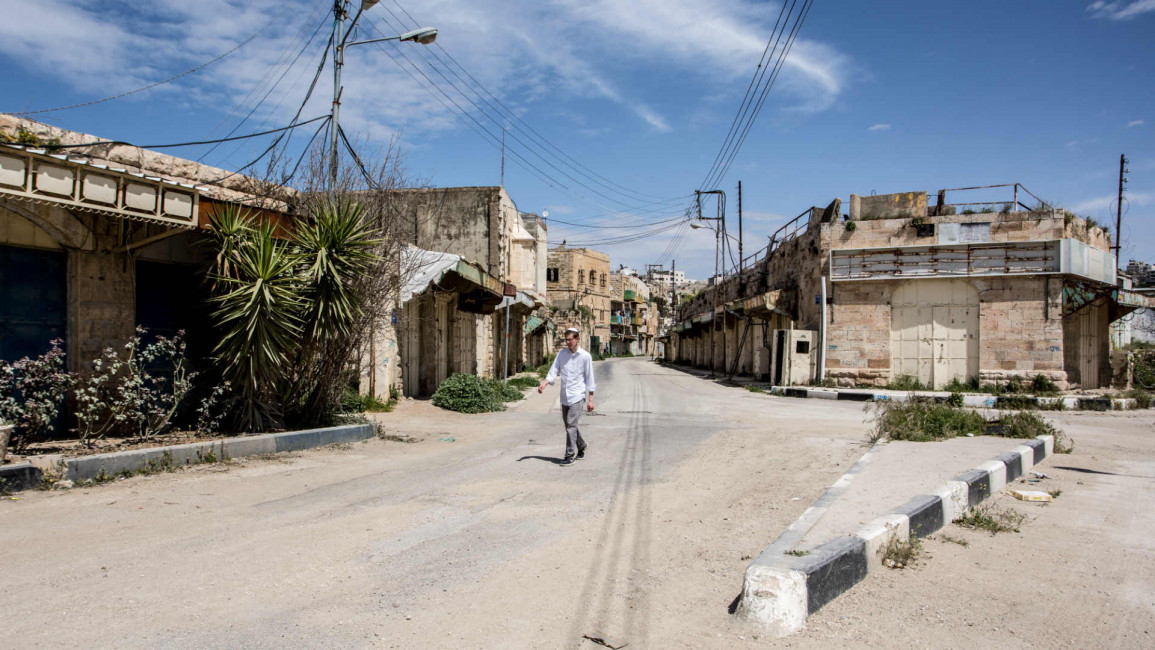Israel to build new Jewish settlement in divided Hebron's 'ghost' street
The announcement came as the prospects of a third snap election since April loomed larger, with Defence Minister Naftali Bennett's New Right party leaning heavily on settlers for support at the polls.
The defence ministry said Bennett had instructed the departments responsible for the Israeli-occupied West Bank "to notify the Hebron municipality of planning a new Jewish neighbourhood in the wholesale market complex", according to AFP.
The market area is on Hebron's Shuhada Street. Once a bustling thoroughfare leading to a holy site where the biblical Abraham is believed to have been buried, the area is now known as a "ghost town" off limits to Palestinians, with the exception of those who live in close proximity to Israeli settlers.
Hebron Palestinians have long demanded that Shuhada Street be reopened to traffic, calls that have gone unanswered by the Israeli authorities.
While the Oslo Accords granted sovereignity over major Palestinian cities in the occupied West Bank to the Palestinian Authority, Hebron represents a unique case.
Its status as a holy city for both Jews and Muslims and the foundation site for the Israeli settler movement, coupled with the devastating 1994 massacre of 29 Palestinian worshippers in the city's Ibrahimi mosque, meant the West Bank's largest city was instead apportioned between Palestinian residents and Israeli settlers.
Around 80 percent of the city is controlled by the Palestinian Authority and is home to around 200,000 Palestinians. The rest, including much of Hebron's old city, is occupied by hundreds of Israeli settlers, who live in close proximity with Palestinians who have refused to give up their homes despite facing regular attacks by Israeli settlers and soldiers.
Sunday's statement said the planned new building project would "double the number of Jewish residents in the city", a promise that follows similar pledges earlier this year.
The move comes at a time of political turmoil in Israel after general elections in April and September ended in deadlock.
Neither Prime Minister Benjamin Netanyahu and allies like Bennett nor their opponents won enough parliamentary seats to form a viable coalition.
Lawmakers now have until December 11 to find a solution or see parliament dissolved once again.
At Sunday's weekly cabinet meeting, Netanyahu also offered good news for the settlers, pledging 40 million shekels ($11.5 million) for improved security.
"We are strengthening the security components in the communities in Judea and Samaria, of the Israeli citizens there," he said, using the biblical terms for the West Bank.
Ahead of the September elections, Netanyahu also pledged to annex the existing "Jewish neighbourhoods" of Hebron and the neighbouring Kiryat Arba settlement.
Israeli settlements are considered illegal under international law and are bitterly opposed by Palestinians.
Despite that, US Secretary of State Mike Pompeo announced last month that the United States no longer considers the settlements illegal, a move that has been widely criticised for emboldening their expansion.
Agencies contributed to this report
Follow us on Twitter and Instagram to stay connected


![President Pezeshkian has denounced Israel's attacks on Lebanon [Getty]](/sites/default/files/styles/image_684x385/public/2173482924.jpeg?h=a5f2f23a&itok=q3evVtko)



 Follow the Middle East's top stories in English at The New Arab on Google News
Follow the Middle East's top stories in English at The New Arab on Google News


